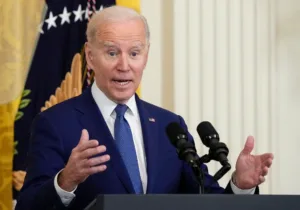What to expect from Brazil’s Foreign Policy under Lula
In a very close and contentious election, Luis Inácio Lula da Silva, the former president from 2002 to 2010, defeated the sitting president Jair Messias Bolsonaro. Not only was Lula arrested for corruption and then released amid several controversies over the legality of his trial, but he will be the first democratically elected Brazilian to have three presidential terms, and Bolsonaro will be the first to fail to be reelected.
Leaving aside the internal controversies regarding the two candidates, something that has raised questions is the future of Brazilian foreign policy in the Middle East. This is due to the weight that both presidents gave to the region. Since the 2018 elections, Bolsonaro has made it clear that he would bring Brazil closer to Israel, in a clear nod to his evangelical voters. In the last four years, the country, maintained a more favorable position to the Jewish State in international institutions such as the UN.
Bolsonaro, however, did not fulfill his promise to move the embassy to Jerusalem, nor did he recognize Hamas and Hezbollah as terrorist groups. Furthermore, his administration was marked by controversies regarding Israel. Most of them involved the Holocaust and cases of antisemitism among members and supporters of his government, especially during the pandemic. Bolsonaro even claimed that the Holocaust should be forgiven, being rebuked by the then-Israeli president Reuven Rivlin. He also affirmed that Nazism was a leftist movement, which, is a historical distortion. Besides this, in 2019, his Secretary of Culture was exonerated for repeating a speech by Nazi official Joseph Goebbels. This made many sectors of the Brazilian Jewish community fear for their future in the country. These speeches fueled historical revisionism among some far-right movements and also empowered anti-zionist groups on the left. These leftist activists exploited Bolsonaro’s polemical instances against minorities and his ties to Israel to justify their claims that Zionism is a form of racism and imperialism. As a result, cases of hatred against the Jews and the number of neo-Nazi groups also grew in the country between 2019 and 2022.
In 2010, when he became the first Brazilian president to visit the Jewish state, he also faced controversy: while present in Israel, Lula refused to participate in the tributes the 150th anniversary of the birth of Theodor Herzl, although he paid tribute to the Palestinian leader Yasser Arafat, considered by Israel to be a terrorist. In the same year, Brazil recognized Palestine as a state, setting a precedent that was followed by many other Latin American countries. In addition, Brazil began to adopt a very hostile stance towards Israel in international organizations’ forums, especially at the UN bodies. The biggest problem, however, was with Iran.
In his attempt to make Brazil a middle power, Lula sought, together with Erdogan, the president of Turkey, to broker a nuclear deal between the US and Iran. He argued that Iran had the right to enrich uranium for peaceful purposes and became friends with then-Iranian President Mahmoud Ahmadinejad, who visited him in Brazil. Despite condemning Ahmadinejad’s open antisemitism and Holocaust denial, Lula justified his friendship with the Iranian authority on the grounds of pragmatism and on a realist conception of international politics. The actions, however, displeased both the Israeli government and the Jewish community in Brazil, for just reasons. It also exposed Lula’s naïveté, once he thought that it would be possible to deal with all the main international actors of the Middle East in the same way, without constrains.
Today the situation in the post-pandemic world is quite different, especially since the war in Ukraine. Lula, therefore, has quite different challenges in this new term. Instead of seeking to transform Brazil into an emerging power on the same level as India or China, he will need to regain international trust in Brazilian diplomacy. In recent years, the country has become quite isolated on the international stage, being relegated to the position of a pariah due to Bolsonaro’s mismanagement of the pandemic and especially his policy of deforestation of the Amazon.
Furthermore, in order to be elected, Lula had to make a series of concessions, seeking the support of various parties and centrist candidates. He has already made it clear that he will not make a government focused only on the interests of his party, the Worker’s Party (PT). On the contrary, he will seek national unification. Furthermore, in terms of foreign policy, he will focus mainly on environmental issues such as cooperation for protection of the Amazon rainforest. This is a concern shared by many countries, even Israel, as mentioned by president Isaac Herzog, when congratulating Lula on Twitter, the day after his victory. On these grounds, the Brazilian elected-president was even invited by the Egyptian government to participate of the 2022 United Nations Climate Change Conference, which recently took place in Sharm El-Sheikh. These political constraints and international opportunities tend to make Lula’s foreign policy very different than the one he pursued in previous terms, focused on countering the US hegemony and fostering a multipolar international order.
In this sense, when it comes to the Middle East, it seems that Lula will have new priorities and value pragmatism and equidistance in relation to the Israel-Palestinian conflict. Brazil will continue to take advantage of the Abraham Accords to increase trade with both Israel and the Arab countries. Brazilian diplomacy may also distance itself from Iran and keep a pragmatic tone when concerning Human Rights issues. It is possible that Lula will adopt Brazil’s previous voting patterns against Israel at the UN and insist on the idea of a two-state solution to the conflict with the Palestinians.
From the perspective of Israel’s national interests, this is clearly not the best scenario, but it is something that perhaps helps in the fight of anti-Zionism. Unfortunately, this is common not only in many sectors of the Brazilian left which support Lula, but also in Latin America as whole. On this regard, the Chilean president Gabriel Boric is an important name. He is considered by many as an example of left-wing moderation when it comes to foreign policy, due to his criticism to the dictatorial governments of Venezuela and Nicaragua, which Lula still hesitate to condemn. Boric, however, is also known by his anti-Israel instances and his historic of antisemitic comments. Lula, on the other way, despite criticism of the Jewish state, has made clear his commitment to defending Israel’s legitimacy and its right to self-defense.
The Middle East is likely to receive much less attention in Brazilian foreign policy than in previous administrations. Lula’s focus will be mainly on Brazil’s relations with Latin American countries, the US, China, and Europe, the country’s important economic partners. He will also have his hands full with the impacts of the Russian-Ukrainian war. As ambiguity still hangs over much of Lula’s approach, all eyes should turn to his appointment of Foreign Minister.







 Live in the DC area? Sign-up for Providence's in-person events list!
Live in the DC area? Sign-up for Providence's in-person events list!